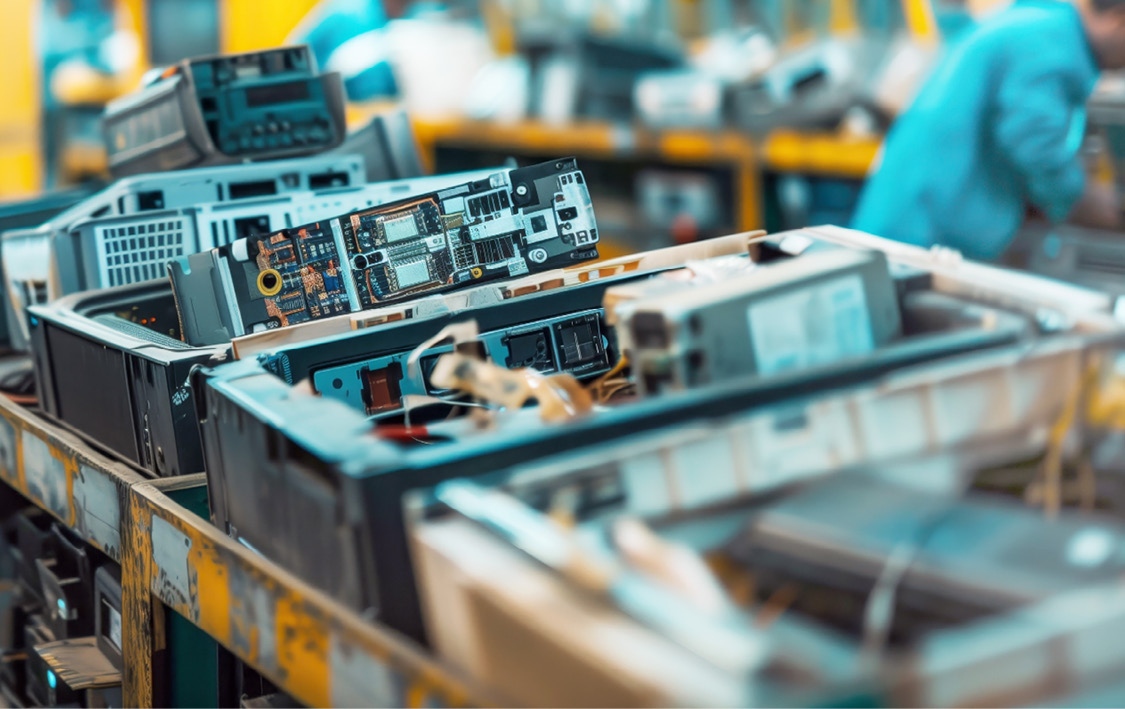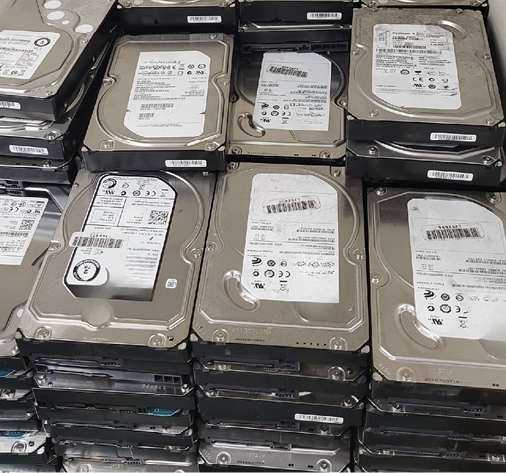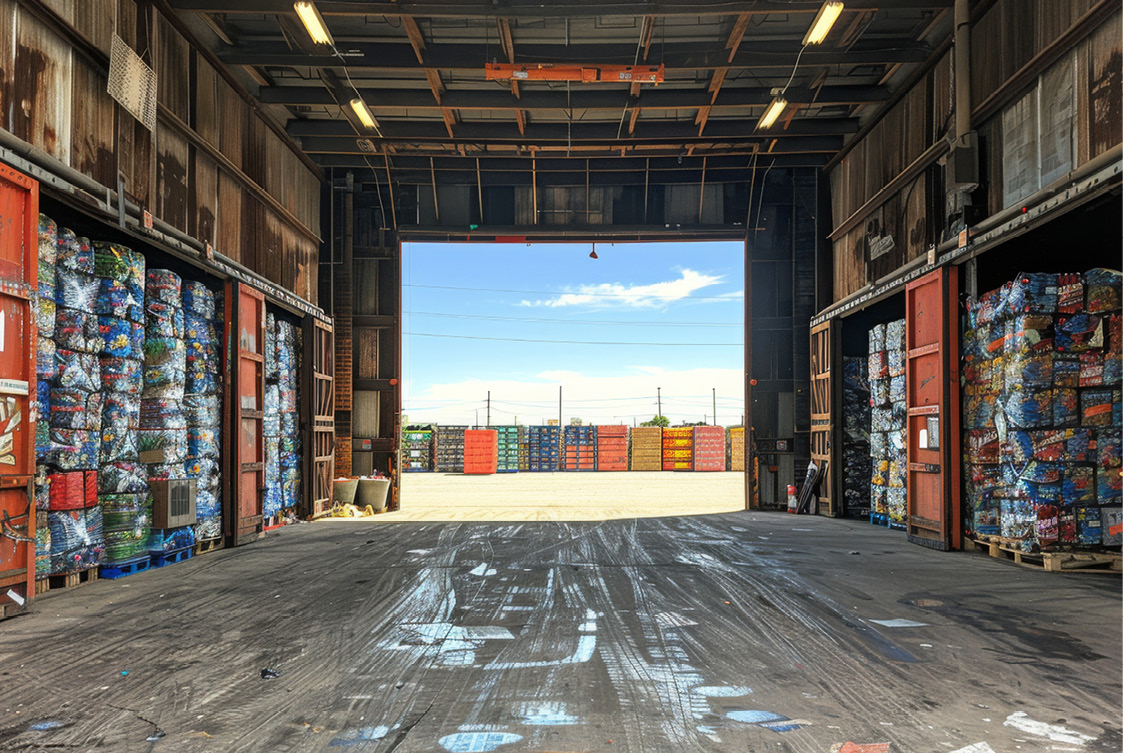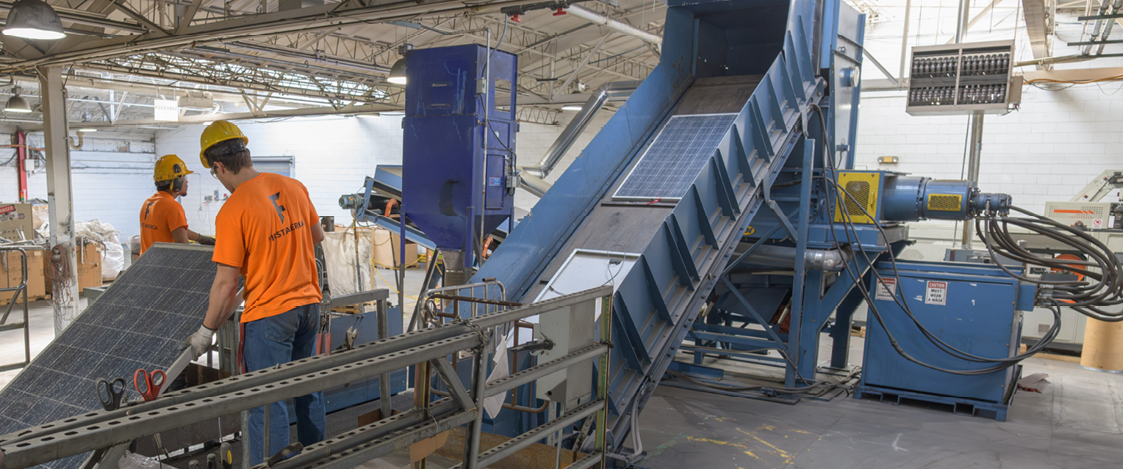In today’s fast-evolving tech landscape, businesses are consistently innovating, developing cutting-edge AI systems, and manufacturing smart devices. Yet, with all this progress comes a responsibility: managing the lifecycle of these advanced technologies in a way that protects both the planet and your brand. Sustainable tech recycling isn’t just an environmentally friendly choice—it’s also a powerful strategy to safeguard your brand reputation, ensure regulatory compliance, and streamline operational efficiency.
The Role of Eco-Conscious Recycling in Today’s Tech Race
Tech breakthroughs are exciting, but they often lead to a surplus of outdated or returned equipment. Recycling isn’t merely about reducing landfill waste; it’s about transforming what could be waste into valuable resources. For AI and robotics industries, recycling components like sensors and processors helps extract rare materials while avoiding environmental harm.
Beyond protecting the planet, recycling tech devices responsibly is also a way to boost your brand reputation. With growing awareness of environmental issues, consumers and partners alike value businesses that prioritize green practices. By recycling your tech properly, your company can position itself as a leader in environmental responsibility, which can attract environmentally conscious clients and partners in today’s eco-conscious marketplace.

The Competitive Advantage of Sustainable Practices
In an era where sustainability is a significant competitive differentiator, committing to environmentally responsible tech recycling can set your company apart. Consumers, investors, and other stakeholders are increasingly scrutinizing companies’ environmental, social, and governance (ESG) practices. Those that can showcase a strong commitment to eco-friendly recycling are better positioned to enhance brand loyalty, access new funding opportunities, and boost market share. Implementing recycling initiatives and sustainability reports can also serve as a powerful tool for transparency, helping your business demonstrate measurable, positive impacts.

How Sustainability Enhances Brand Impact:
- Boosts Brand Loyalty and Trust Companies that prioritize sustainability show they care about more than just profits, which resonates deeply with today's eco-conscious consumers. This commitment builds trust and loyalty, making customers more likely to choose and stick with your brand.
- Attracts Eco-Conscious Consumers and Partners As more individuals and businesses actively seek eco-friendly products and services, prioritizing sustainable practices can attract customers and partners who share similar values, broadening your customer base and strengthening partnerships.
- Differentiates Your Brand in a Crowded Market Standing out is crucial in competitive industries, and a strong sustainability commitment can set your company apart, positioning it as a leader with a unique value proposition that appeals to consumers looking for environmentally responsible choices.
- Increases Employee Engagement and Retention Employees, especially millennials and Gen Z, are increasingly drawn to purpose-driven companies. Sustainability initiatives foster a positive workplace culture, boosting morale, engagement, and retention, which can also enhance productivity.
- Drives Positive Public Relations Sustainability initiatives open opportunities for positive media coverage and public recognition. Promoting these efforts can enhance your reputation and provide free PR, reinforcing your brand’s credibility and appeal.
- Encourages Long-Term Cost Savings While sustainability often requires an initial investment, eco-friendly practices like recycling, reducing waste, and optimizing resources can lower operational costs over time, reinforcing a brand's image as both sustainable and efficient.

Data Security: A Vital Consideration in Recycling
One major concern for companies recycling electronic devices is data security. AI systems and smart devices store vast amounts of sensitive information. Whether it’s proprietary data from a robotics system or personal data from consumer returns, ensuring that this information is safely destroyed is non-negotiable. Failing to securely erase or destroy this data can expose your business to cybersecurity risks.
Partnering with a trusted recycling provider ensures that your data stays secure throughout the recycling process. A reliable recycling partner implements strict cybersecurity protocols to guarantee that all sensitive information is erased or destroyed before any device is processed. This commitment to data security doesn’t just protect businesses; it demonstrates your company’s dedication to client safety, an invaluable asset in building customer trust.
Asset Recovery: Turning Returns into Resources
Asset recovery plays a crucial role in supporting a circular economy. By recovering materials from devices like batteries, rare earth metals, and recyclable plastics, companies can reduce the need for new resource extraction. This, in turn, reduces manufacturing costs, streamlines production, and optimizes resource use—all while promoting environmental sustainability.
Through asset recovery, businesses can also reclaim value from unused tech. Instead of letting consumer returns or outdated office equipment go to waste, repurposing or recovering valuable materials can help you recoup some of your initial investment. This strategy not only generates additional revenue but also lowers overall operational costs by reducing reliance on new resources.
Boosting Operational Efficiency Through Recycling
Effective recycling goes beyond environmental and financial benefits. For manufacturers, recycling can help streamline operations by clearing out old or surplus equipment and materials, creating space for core activities. Recycling efficiently means turning potential waste into recoverable resources that can be used elsewhere within your operations, maximizing efficiency.
Additionally, recycling your tech helps your company stay compliant with evolving environmental regulations. Ensuring that all waste is disposed of or recycled according to regulatory standards is crucial to maintaining operational excellence, avoiding penalties, and ensuring long-term business success.

Navigating Regulatory Pressures and Industry Standards
Sustainable recycling isn’t just a best practice; it’s often a legal requirement. Regulations around e-waste are becoming increasingly stringent, especially in regions with higher environmental standards. Companies in the tech sector must stay informed of regulations governing the disposal and recycling of electronics, from data protection laws to chemical disposal mandates. Proactively aligning with industry standards, such as R2v3 or e-Stewards certification, helps ensure your company operates within regulatory bounds and can prevent costly compliance risks.

Embracing the Future of Sustainability
Sustainable tech recycling offers far-reaching benefits for companies across industries. From safeguarding your data to recovering valuable assets and streamlining operations, adopting sustainable recycling practices not only protects the environment but also strengthens your brand, boosts operational efficiency, and reinforces your commitment to responsible innovation.
In today’s heightened environmental accountability, sustainable recycling also signals that your business is future-ready, agile, and resilient. With the right recycling practices in place, companies can reduce their carbon footprint, engage with eco-conscious consumers, and solidify their standing as forward-thinking leaders in a rapidly evolving marketplace.
Les Bury is the President of First America, a metals and electronics recycling company, where he has led significant growth and innovation in e-waste recycling since 2014. With over 30 years of leadership in logistics and operations management, Les's career includes pivotal roles at Hewlett-Packard, North American Van Lines, and Sims Lifecycle Services. He holds a Hazardous Material Management Certificate from the University of California, Berkeley, and has certifications in Lean Six Sigma, Quality Management, and Emergency Preparedness & Planning. His strategic vision has consistently driven business expansion and operational excellence across the industry.